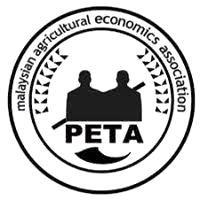Policy Gaps and Institutional Support for Emerging Quail Egg Producers in Nigeria: Implications for Sustainable Agricultural Development
Policy Gaps and Institutional Support for Emerging Quail Egg Producers in Nigeria
DOI:
https://doi.org/10.36877/mjae.a0000603Abstract
Quail egg production has emerged as a viable livelihood strategy in Nigeria, offering nutritional benefits and economic opportunities for smallholder farmers. However, systemic challenges threaten its sustainability and scalability. This study assesses quail egg production, focusing on profitability, institutional constraints, and policy gaps. Using a mixed-methods approach, data were collected through structured surveys of 150 quail farmers, key-informant interviews with 15 policymakers and stakeholders, and desk reviews of Nigerian agricultural policies. Descriptive statistics, thematic analysis, profitability metrics, and Policy Analysis Matrix (PAM) were employed to analyse data collected. Key findings reveal significant profitability disparities across production scales, with small-scale farmers achieving a benefit-cost ratio of 1.09 compared to 1.24 for large-scale producers. Critical challenges include exclusion from national agricultural policies, limited access to formal credit, and inadequate extension services. The PAM results underscore Nigeria’s quail sector as socially profitable but privately stifled by policy distortions. Reforms to realign input and output prices with global standards could unlock ₦55.38 per unit of divergence, enhancing rural livelihoods, food security, and equitable economic growth. Qualitative insights underscore frustrations among farmers, who face exploitative middlemen, gender disparities in loan access, and rising feed costs. The study concludes that quail farming remains marginalized due to political-economic biases favouring larger livestock sectors. To unlock its potential, policymakers must integrate quail production into national agendas, prioritize gender-responsive credit programs, and revitalize extension services through mobile-based platforms. By addressing institutional neglect, Nigeria can replicate global successes, transforming quail farming into a pillar of sustainable agricultural development.

.png)

.jpg)
